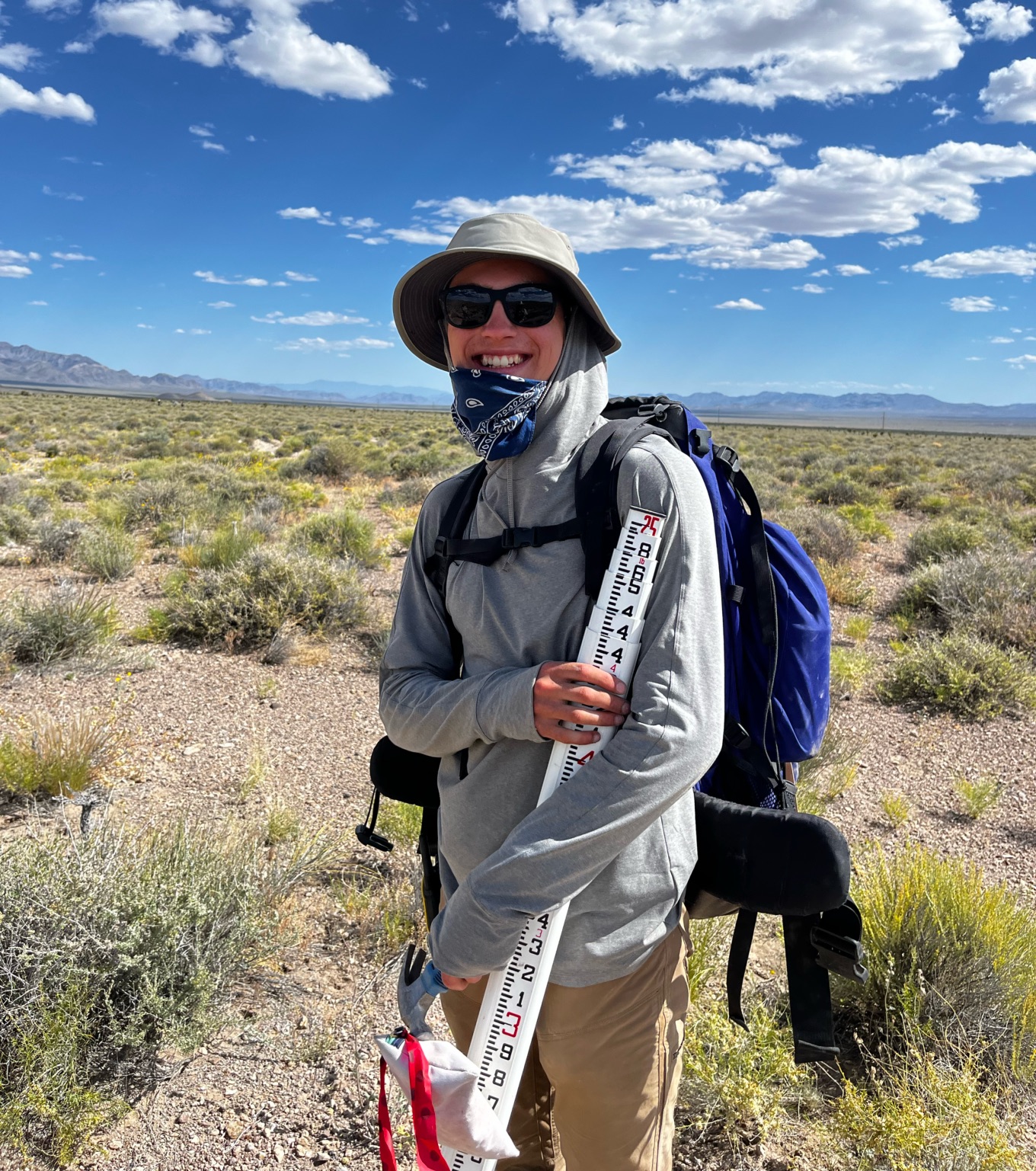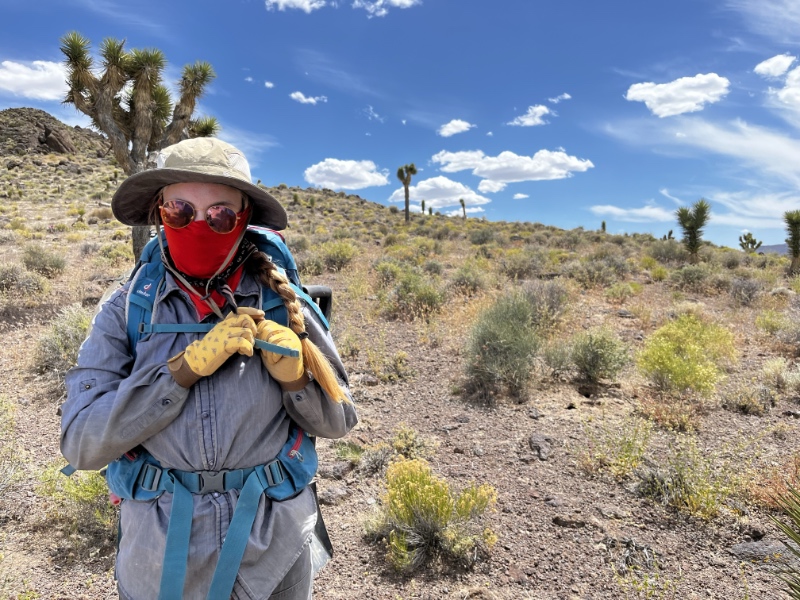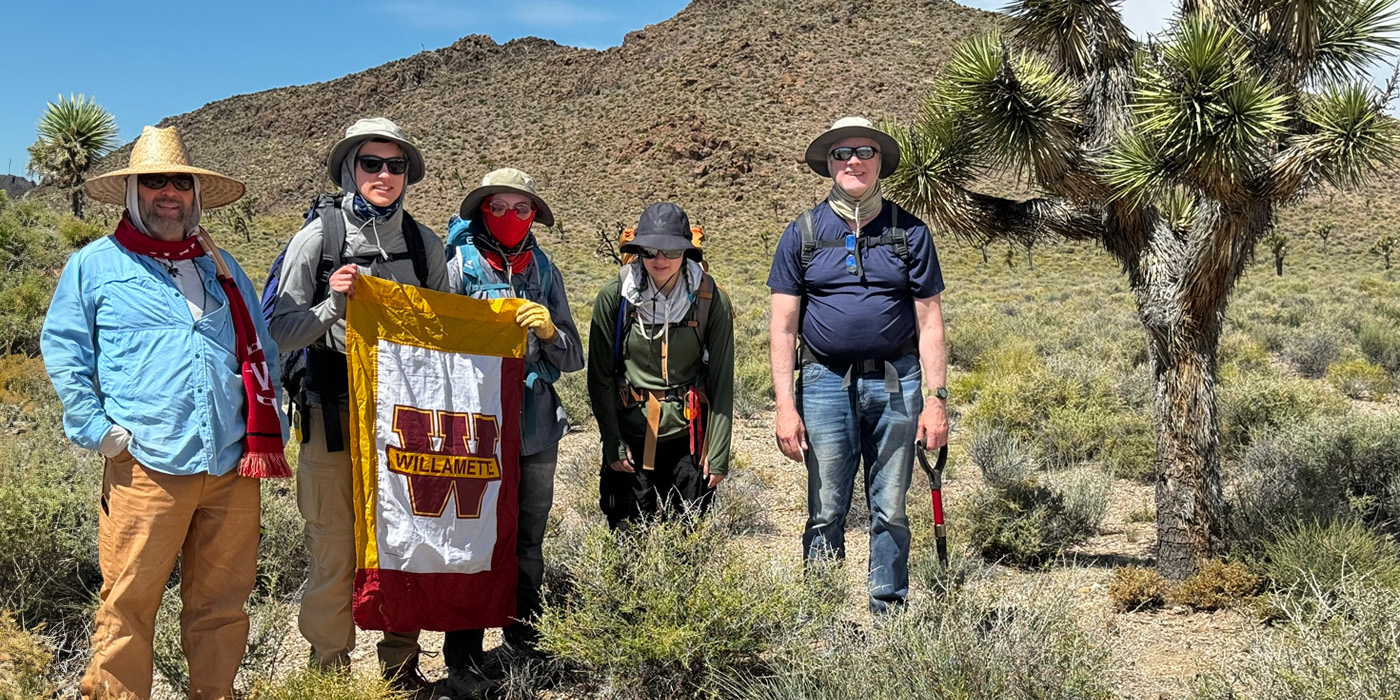Professor of Biology Christopher Smith and Visiting Assistant Professor of Biology Robert Bills were awarded a $200,000 grant from the US Bureau of Land Management (BLM) to study mycorrhizal fungi associated with Joshua trees that could shed light on how the plants can withstand the effects of climate change. The grant will support student and faculty research, pay for a laboratory technician, and provide summer funding for Willamette faculty and staff.
This summer, Willamette College students Ajia Buvit BA’26, Bjorn Domst BA’26, Sarah Jones BA’25, and Carson Meyer BA’26 conducted research with Bills and Smith to identify fungi in the roots of Joshua tree and to develop genetic tools to identify the fungi.

Mycorrhizal fungi are microscopic soil organisms that associate with plant roots. The fungi grow into the plant roots themselves, and outwards into the soil, taking up phosphorus, water, and other nutrients to help the plant grow. In exchange the plants provide sugars to the tiny fungi. Mycorrhizal fungi are believed to have been instrumental in the origin of the first land plants, and play key roles in sustainable agriculture and the restoration of native plants to habitats that have been disrupted by human activities. Emerging research also suggests that mycorrhizal fungi may improve plants' drought resistance in both agricultural and wild plants.
“Working in the Smith lab this summer was an amazing experience because I had the opportunity to do both lab and field work, but also because we were helping pave the way for future research in Joshua tree mycorrhizal fungi,” Buvit said.

Joshua trees are woody plants that occur in the Mojave Desert region of southern California, Nevada, and Arizona. They are the namesake for both Joshua Tree National Park, located an hour east of Los Angeles. The trees are considered to be the archetypical plant of the Mojave Desert and are an 'umbrella species' for conservation that supports a diverse ecosystem of plants, birds, and insects.
However, rising summer temperatures and prolonged droughts linked to human-caused climate change are pushing Joshua trees to the brink of extinction. Increasingly frequent and intense wildfires have already decimated millions of these desert sentinels, and, in a twist of irony, some Joshua trees are being cleared to make way for solar energy projects — efforts aimed at combating the very climate change that endangers them.
The State of California recently enacted special legislation to protect Joshua trees and the trees are under consideration for listing under the US Endangered Species Act.

The grant from BLM will allow students, directed by Bills and Smith, to continue their work in this system. Bills and Smith aim to evaluate whether different species of fungi occur in different climates, whether the fungi may improve the Joshua trees’ ability to withstand climate change, and whether inoculating soils with fungi can help to reestablish Joshua trees in areas that have experienced wildfire or that have been impacted by human activities.
“We are excited at the opportunity this grant will offer our students real-world field and laboratory research experiences at a variety of scales,” Bills said. “From the Mojave Desert ecosystem to the community of fungi colonizing the roots of Joshua trees, these research experiences are preparing our students to apply the practice of science in order to address the challenges that impact us all.”



